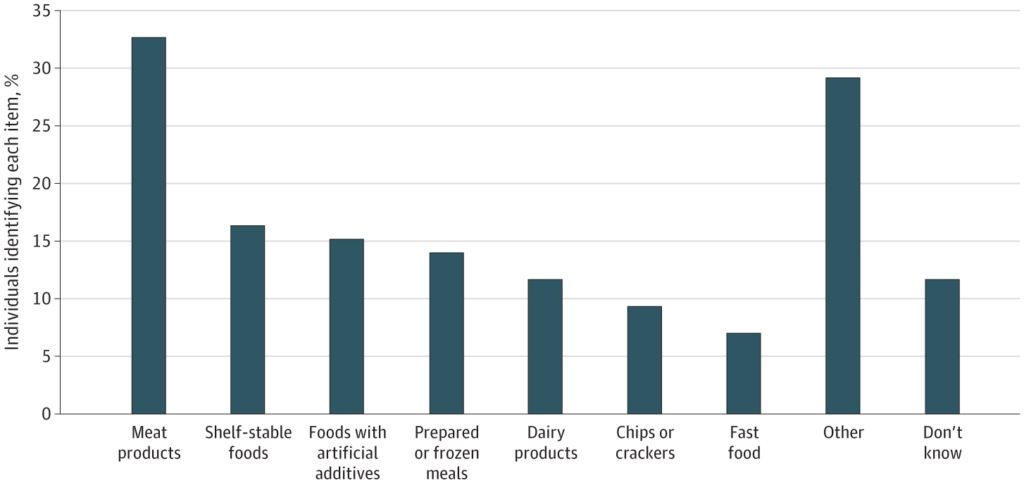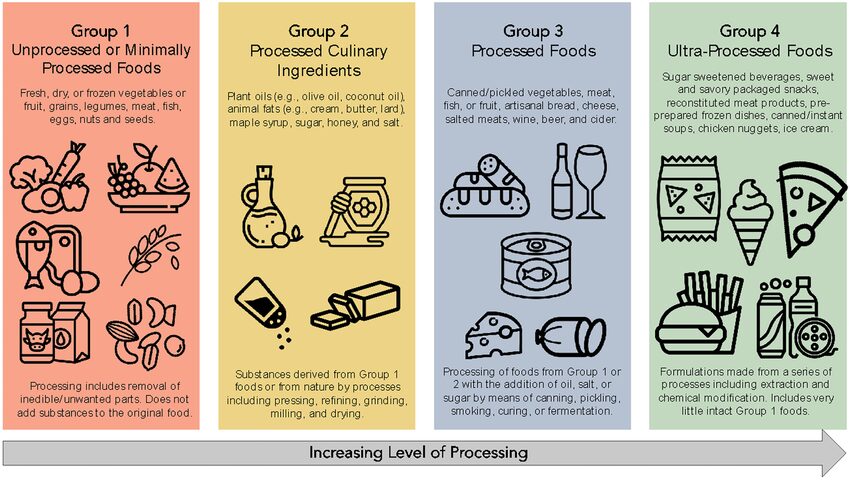
Two in five Americans believe all processed foods are unhealthy, despite evidence showing otherwise, according to a new poll.
Over the last couple of years, as the ultra-processed food (UPF) backlash has raged on, a wave of nutritionists from around the world have battled to introduce one caveat: not all UPFs are equal.
Research has linked many UPFs to ill health and even early death, warning of grave consequences for populations like the US, where these products make up 57% of the average diet. At the same time, experts have poked holes in the way these studies have been conducted and stated that many processed foods aren’t actually bad for you.
However, biased media coverage, the ensuing onslaught on social platforms, and their vilification by Robert F Kennedy Jr have continued to feed consumers misinformation about UPFs. These efforts have been successful too.
A new survey by the Physicians’ Committee for Responsible Medicine (PCRM) suggests that two in five (39%) Americans believe all UPFs are unhealthy, from meat and dairy to ready meals and shelf-stable products.
It comes at a time when UPFs face major political upheaval in the US. The federal government’s recent MAHA report dedicated an entire section to the impact of UPFs on kids, blaming “decades of policies that have undermined the food system and perpetuated the delivery of unhealthy food to our children”.
Meanwhile, California Governor Gavin Newsom has directed state departments to explore potential actions that can limit the harms associated with these foods, which could include the use of warning labels on packaging.
Now, eight in 10 Americans consider whether a food is processed before deciding to buy it, and 63% are avoiding processed foods. This is despite two-thirds being unfamiliar with the term ‘ultra-processed food’, highlighting the need for greater consumer education.
Only 1% of Americans think meat causes diabetes

PCRM polled nearly 2,200 adults, and found that no single processed food was identified in a majority vote. The category most associated with UPFs was meat – 28% of Americans said luncheon meat, hot dogs and hamburgers are processed. This sentiment was twice as popular among respondents aged over 60 (36%) as those aged 18-27 (18%).
Meanwhile, 14% of participants called shelf-stable foods – whether canned, frozen or packaged –processed, and 13% said the same for products with artificial additives. The latter was the second most frequently identified processed food group among young respondents, followed by chips or crackers.
When asked if they believed all processed foods are bad, only 40% said no (nearly identical to the number who agreed) – the rest remained unsure. Of those who felt all such products are unhealthy, Asian Americans (57%) and Hispanic respondents (44%) were most likely to think so.
The researchers then asked which foods Americans thought increased the risk of developing type 2 diabetes. Over half (51%) blamed sugar, followed by desserts (19%) and carbohydrates (15%), and only 7% put the finger on processed foods, and just 1% on meat.
The results chime with a 2023 survey where participants strongly correlated the healthfulness of food with the amount of processing it undergoes. Here, young participants failed to identify processed meats as processed.
Animal products are a major source of saturated fat. And a diet high in this nutrient can reduce insulin sensitivity in as little as four weeks, despite no changes in body weight. Despite both processed and unprocessed meat being linked to type 2 diabetes, most young participants in the 2023 poll didn’t identify this risk.
PCRM calls for ‘more specific’ definition of UPFs

The study, published in the JAMA Network Open journal, highlights the need for clearer information about UPFs and their true impact on our health. “Foods considered ‘ultra-processed’ can reduce diabetes risk or increase it, depending on which ones they are,” said Neal Barnard, lead author of the paper and president of the PCRM.
“Studies show it’s processed meat consumption that is associated with diabetes and cardiovascular disease, not plant-based UPFs, such as breakfast cereals, which are actually associated with reduced risk of these conditions,” he added.
In 2023, a Harvard University study associated frequent intake of meat with a 44% increased risk of diabetes. Consumption of ultra-processed cereals, though, lowered this risk by 22%. Another paper in the same year revealed that while regular consumption of meat and sugary drinks is more likely to cause ailments like cancer, heart disease and Type 2 diabetes, breads and cereals can actually lower the risks, thanks to their fibre content.
PCRM is the latest voice to call for a more standardised definition of processed foods, which were first mentioned in the Nova classification developed in 2009. Some researchers have proposed alternatives, and others are in development.

“The vague term ‘processed foods’ should be replaced by more specific terms describing foods’ known health effects,” said Barnard. “Some plant-based foods that are considered processed, such as cereal and canned vegetables and fruit, are actually what Americans need to fight chronic lifestyle diseases like diabetes and cardiovascular disease.”
Only last month, the American Medical Association adopted a new policy aimed at educating consumers about the differences between healthy and unhealthy UPFs, and the Food and Drug Administration (FDA) said it would develop its own definition. This could inform the next national dietary guidelines, which set the nutritional standards for school meals and federal food assistance schemes. The states of Arizona and Utah have also enacted legislation to define UPFs.
“It is important that a federal definition of UPFs reflects scientific evidence and avoids aggravating public confusion,” said Barnard. “Science shows that UPFs differ greatly: Certain ones are associated with health problems while others are associated with reduced risk.”
The post Americans Fail to Identify Healthy Processed Foods from Harmful Ones, Finds Study appeared first on Green Queen.
This post was originally published on Green Queen.